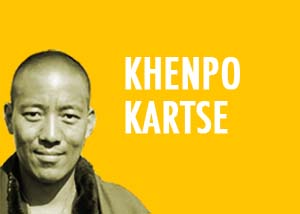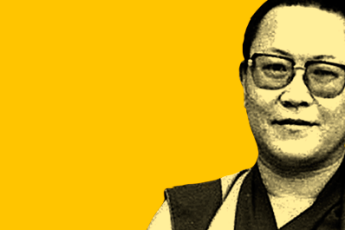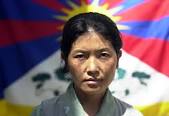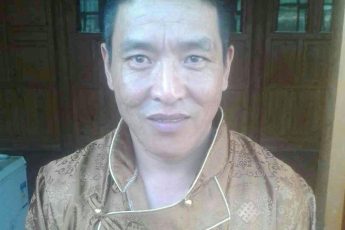 By Bhuchung D Sonam
By Bhuchung D Sonam
In her book ‘Revolution: the Banned Tibetan memories of the Cultural Revolution’, Tibetan author and poet Tsering Woeser writes that the Chinese authorities are carrying out the same policies of the Cultural Revolution but in a different name. This can be seen most prolifically by the fact that Beijing has arrested more Tibetan intellectuals over the last four years than ever before.

Kalsang Tsultim, or Gyitsang Takmik as is his pen name, hails from Labrang Sangchu Dzong in North Eastern Tibet, and is one of the many writers and artists detained in this latest crackdown.
In 2009 he recorded a moving video message calling for the preservation of Tibetan culture and language among other things. After the Chinese authorities accused him of ‘splitting the motherland’, Kelsang Tsultrim went into hiding. He was later arrested on 13 December 2010 and kept in detention for a year during which none of his family members were allowed to visit him or provided information about his whereabouts.
On 30 December 2011, Kelsang’s family was notified by the Chinese authorities that he had received a four-year prison sentence. Again they have not been allowed to see him.
I recently translated Kelsang’s words in which he says, “A Tibetan saying goes “all supressions are suffering and all freedoms happiness.” But how do we talk about the term ‘freedom is happiness’. Freedom to me is the right to preserve my culture, practice my religion and to maintain my Tibetan way of life. It goes without saying that Tibet is nation with its own unique history, way of life, and abundant cultural heritage that goes back over millennia.”; words classed by the Chinese Authorities as being ‘banned contents’.
Kelsang’s arrest and arbitrary sentencing, for simply speaking these words above, highlights Beijing’s systematic policy to stifle and phase out Tibetan culture and language by hammering down on Tibetan creative artists who, undaunted by the risk of these harsh Chinese responses, are using alternative ways to get their messages to the outside world.
The abridged translation of the video text can be read in full at Burning Tibet: ‘I will not close my eyes even in death”






Leave a Comment